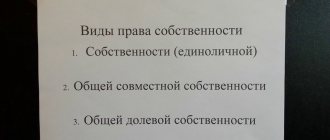Last update: 09/21/2020
In transactions for the purchase and sale of apartments, a power of attorney can be used not only by the Seller, but also by the Buyer. When an apartment is SOLD by proxy, the Buyer faces certain risks. This is described in detail at the corresponding step of our INSTRUCTIONS.
What can be said about the case when a power of attorney is issued for the right to BUY an apartment ? When does this happen? How does such a transaction take place? What pitfalls can await its participants?
In general, cases with a power of attorney from the Buyer are rare in the real estate market, but they do happen. Therefore, transaction participants need to have an idea of what it looks like, how it is formatted, and what they need to pay attention to. A link to a sample of such a power of attorney is provided below.
How to bargain when buying an apartment - psychological techniques of realtors.
When is a power of attorney required?
A power of attorney is necessary in situations where the principal cannot personally deal with the purchase of an apartment. In this case, he can choose a person whom he completely trusts. It may be needed in the following cases:
- real estate is registered by one spouse;
- the principal has limited physical capabilities due to serious illness, disability or old age;
- the principal cannot be present in person due to the fact that he lives far away.
Why is it necessary to notify the representative and third parties about the revocation of the power of attorney?
By virtue of paragraph 1 of Art. 189 of the Civil Code of the Russian Federation, the person who issued the power of attorney and subsequently canceled it must notify both the representative and the third parties for whose representation the document was issued. The authorized person, upon learning that his powers have been revoked, must return the original document issued to him (clause 3 of Article 189 of the Civil Code of the Russian Federation).
If the representative has not been notified, he will be able to continue to perform the actions prescribed in the power of attorney on a legal basis, with all the ensuing consequences. If the representative was notified, but continued to use the canceled power of attorney and did not return it, his actions will be considered illegitimate.
In the case where only the representative, but not third parties, are notified of the revocation of the power of attorney, they will reasonably consider the powers of the representative to be valid, and accordingly, all his actions will be recognized as performed in the interests of the represented one (Clause 2 of Article 189 of the Civil Code of the Russian Federation).
Notification of document revocation can be done in several ways:
- Automatically, after the cancellation of any power of attorney through a notary, the next day after information about this is published in the register of notarial actions.
- By sending (or transferring) to the attorney and third parties a written document containing information about the revocation of the power of attorney - from the moment of receipt of the notification.
- After a month has passed after the publication of information in the Kommersant newspaper (the signature on the publication is required to be notarized, so you will have to visit a notary in this case as well).
Main types
There are several power of attorney options that can be used to purchase real estate. Among them are the following:
- General . Notaries do not indicate this exact wording anywhere, but it is used everywhere. This power of attorney allows you to carry out the necessary actions with the principal’s real estate and provides the broadest powers.
- With the right of subrogation . Typically, such a power of attorney is issued to a realtor so that they can perform a one-time action with the apartment. For example, it allows an agent to submit documents to Rosreestr for registration without your personal participation.
- Buyer's power of attorney . It provides the opportunity to deposit money and the right to sign when concluding a purchase and sale agreement. It is important to indicate the address of the property and the purchase price.
Reasons for revocation
The motives can be different: a citizen or organization has lost interest in a specific transaction or a series of transactions, trust in the person who received the document has disappeared, the director, who had broad powers as a fiduciary, has resigned, or the fiduciary has fallen ill, died, and cannot perform the tasks assigned to him. A much more important question is how to revoke a notarized power of attorney for an individual: where to go and what actions to take.
It’s worth saying right away that revocation is possible from any attorney, his status does not matter: the procedure by which it is allowed to revoke a power of attorney from a lawyer or representative, from an acting director and a financially responsible person is general. But there are cases when the document is irrevocable.
Who can certify a power of attorney?
To issue a power of attorney to purchase an apartment in another city, the future principal must contact a notary in person. The document is signed in front of a notary. Then it is certified with his seal and signature. If a person is in conditions that do not allow him to contact a notary, the following officials can certify the document:
- commander of a military unit;
- the head of the hospital, if the citizen is undergoing treatment and is also a military personnel;
- the head of the correctional institution, if the future principal is sentenced to imprisonment;
- captain of a sailor's ship;
- ambassador or consul, if the principal lives in another state;
- the head of the district administration, if there is no notary in the area.
Procedure for purchasing an apartment by power of attorney
To buy an apartment by proxy, you must:
- Contact a notary, highlight the list of powers that the attorney can perform, draw up a document with a signature and seal. You can specify the validity period as you wish. If a “general” is issued, for example, during a long-term departure of a spouse, it is worth choosing a longer validity period. As a rule, a period of 3 years .
- With a general power of attorney, the attorney can contact a realtor or organize legal support for the purchase of a home and select the property to be purchased.
- Next, you should check the legal purity of the transaction to determine whether there are any circumstances under which the DCT can be cancelled. To check, you should request: a USRN certificate, a cadastral passport, and also check the legality of redevelopments, make sure that the persons living in the apartment are deregistered, and make sure that utility bills are paid on time. If the property belonged to a minor child or a person with limited legal capacity, there must be permission from the guardianship and trusteeship authorities to carry out the sale. When alienating joint property of spouses, the Seller must provide a notarized consent of the spouse to complete the transaction.
- If the verification was successful, all documents are available, you can draw up an agreement, having previously stipulated the rights and obligations of the parties, choosing a form of payment.
- Execute an agreement with the bank to rent a safe deposit box or take other actions that involve secure payment after re-registration of ownership. Deposit money into the cell (account).
- After signing the contract, re-register the transfer of ownership of the apartment. To do this, you need to contact Rosreestr. The transfer can be completed if the power of attorney contains a corresponding entry on the authority to carry out registration actions.
- Sign the transfer and acceptance certificate. This document confirms the fulfillment of obligations on the part of the Buyer.
At this point the deal can be considered completed.
Expenses
The Buyer's costs for issuing a power of attorney will be 200 rubles. (Article 333.24 of the Tax Code of the Russian Federation), however, this is only part of the amount to be paid. A separate fee is charged for drawing up a power of attorney and providing assistance in formulating certain items. Each notary has the right to independently determine the cost of legal and technical services. In general, the cost will be about 1,500 rubles, but for close relatives the cost may be lower.
The next cost item is for notarization of the transaction. It may be mandatory or voluntary. If an apartment that belongs to a minor, an incapacitated citizen, or is in shared ownership is being sold, a certificate is required. The amount will be 0.5% of the contract price, but cannot exceed 20 thousand rubles. With voluntary certification you will have to pay more, and in accordance with Art. 22.1 Fundamentals of legislation on notaries, the amount is equal to:
- 3000+0,4% from the cost of the apartment, if it is less than 1 million rubles;
- 7000+0,2% from the price of housing exceeding 1 million rubles, if the amount in the contract is less than 10 million rubles;
- 25000+0,1% from a price exceeding 10 million rubles. however, the amount cannot exceed 100 thousand rubles.
The parties agree in advance on the procedure for paying current expenses. Negotiations can be conducted by an attorney, preferably a person who understands the legal intricacies of the issue. This makes it more likely that the Seller will bear the costs.
When registering, you will have to pay a state fee equal to 2 thousand rubles.
Contents of the document
A power of attorney for the purchase of an apartment can only be in written form. The document must have the imprint of the legal office that certified it. Only an adult can be trusted to carry out the purchase of real estate. It is drawn up in the direct presence of the principal.
The power of attorney must include basic information about the principal and his representative - passport details, date of birth, full name, address of actual residence and registration at the place of residence.
It is important that the document contains information about the actions that are entrusted to the authorized person . The possible period of use is indicated. If necessary, the right of subrogation is indicated. There are the following rules for drawing up a document:
- A power of attorney can be issued to several persons. It can also be issued by several persons.
- Government agencies are not required to accept powers of attorney drawn up in pencil. The same applies to additions, crossing out and erasures. Pages must be numbered if the document is made up of two or more sheets.
- The text must be typed or written in clear handwriting. The wording must be clear and concise, indicating all dates and deadlines. Names must be indicated without abbreviations.
power of attorney for the purchase of an apartment
Risks of buying an apartment by proxy
Since the alienation of property is associated with the handling of large sums of money, groups of fraudsters operate in the real estate market. There are cases of transactions being carried out using fake powers of attorney, and the Buyer’s money is transferred to a fictitious account for a non-existent apartment. When planning a purchase, you need to be vigilant.
From the seller's side
For the Seller, there is a risk of the transaction being disrupted if it turns out that the counterparty’s attorney exceeds his authority and acts on forged documents. It also happens that unscrupulous relatives fraudulently issue a general power of attorney and act on behalf of an elderly person who is unaware that his property is being sold. The illegality of a transaction can be recognized by going to court, but this will require material and moral costs.
There are often cases when the principal is no longer alive, and under his power of attorney real estate is sold or other legally significant actions are performed.
From the buyer's side
For the buyer, the main risk is to trust an unreliable person. The greatest losses are possible when issuing a general power of attorney. An attorney from among the scammers or “black realtors” will happily take on the job, and the result can be disastrous, for example:
- The trustee will fraudulently take money for the apartment, fail to complete the transaction, and disappear.
- For an impressive amount of money, an apartment with a good renovation and layout can be selected and presented to the Buyer as being purchased, but in reality the property will be purchased at a bargain price in a disadvantaged area. The difference in cost will go to the fraudster and his accomplices.
- Due to incompetence, the attorney may cause confusion in the documents, be inattentive in checking documents, or, out of ignorance, buy an apartment that is under encumbrance, with illegal redevelopment, hidden owners.
The buyer should not completely trust a stranger. A general power of attorney can only be issued to trusted people, for example, close relatives.
We recommend reading: How to protect yourself when buying and selling an apartment
Registration procedure
To issue a power of attorney, you must first make an appointment with a notary.
He will tell you the exact date and time and list the necessary documents. If everything is in order, the registration procedure will take no more than 20-30 minutes. If powers are transferred to a legal entity, it may take up to 3 days for the notary to study the documents. To draw up a legally competent document that will fully comply with all legal requirements, it is important to do the following:
- Provide the notary with a complete set of documents.
- Provide complete information about the person to whom the right to act on behalf of the principal is transferred. It is important to check that the power of attorney contains no errors in his passport data.
- List to the notary what specific actions must be performed on behalf of the principal. Provide information about the validity period of the power of attorney.
The notary will examine the documents provided and draw up a power of attorney. Next, he informs the client about all the consequences of the decision. He makes sure that the person is aware of all the negative and positive aspects of his decision. After this, the signature of the principal is affixed. At the end, the notary certifies the document with his personal signature and seal.
If the principal is an individual, only personal presence at the notary is allowed.
For what period is a general power of attorney issued?
The validity period of the general power of attorney is determined in accordance with the provisions of Art.
186 Civil Code. This is a general rule that governs the duration of any power of attorney. The law does not provide for requirements for the minimum and maximum validity periods of a document. The previously existing limitation of the power of attorney term of 3 years was abolished back in 2013 by the Law “On Amendments...” dated 05/07/2013 No. 100-FZ.
When issuing a power of attorney, it is not necessary to indicate the validity period of the document. If it is not specified, the power of attorney will be valid for exactly 1 year from the date of issue. If you directly indicate a different period—more or less—then the power of attorney will be valid until that time expires.
An important requirement for a power of attorney is the need to indicate the date of its preparation. Otherwise, the document is considered void and does not entail any legal consequences. Specifying the date allows you to determine the beginning of the power of attorney.
When is a power of attorney considered invalid?
There are conditions under which the power of attorney ceases to be valid. This happens in the following cases:
- there is no registration date;
- the principal revoked the document through a notary;
- the principal has died;
- expired.
The validity period is indicated in the power of attorney. If there is no such data, by law it is 1 year.
Thus, a power of attorney allows you to purchase an apartment on behalf of the principal, if he does not have the opportunity to personally do this. But it must be formatted correctly. If this is not done, the document will not have legal force.
How to revoke a notarized power of attorney to represent interests
Subp. 2 p. 1 art. 188 of the Civil Code of the Russian Federation provides for the right of the person who issued the power of attorney, or one of the persons who jointly issued the document, to cancel it. Accordingly, it is correct to say not “revoke the power of attorney,” but “cancel,” however, due to the widespread use of the term “revocation of power of attorney,” we also use this terminology.
The Civil Code of the Russian Federation does not provide a clear and detailed answer to the question of how to revoke a notarized power of attorney. The only wording contained in sub. 2 p. 1 art. 188 of the Civil Code of the Russian Federation indicates that the cancellation of a power of attorney is carried out in the same form in which it was issued, or in notarial form.
In practice, to cancel a document that has not been certified by a notary, it is necessary to fill out a paper indicating that the previously issued power of attorney has been cancelled. If the transfer of powers was certified by a notary, it is enough to visit him and draw up a notarized document revoking the notarized power of attorney. In this case, information about the cancellation is included in the public register of notarial actions. The information is published the next day after the entry is made, and the representative is considered automatically notified of this (clause 2 of the letter of the Federal Notary Chamber dated July 12, 2016 No. 2493/03-16-3.
It is recommended to always revoke any powers of attorney through a notary, which will ensure that the representative and third parties are notified of their termination. This will eliminate disputes in the event that the representative performs actions on behalf of the attorney after the document is withdrawn.
Pitfalls on the buyer's side
If a representative of the buyer, rather than the seller, acts under a power of attorney in a purchase and sale agreement, there are risks specific to this situation:
- Payment is made not by the representative, but by the buyer. That is why any methods of checking the representative in this case do not work: even if the attorney is absolutely pure and acts exclusively in the interests of the principal, he cannot guarantee that the funds under the agreement will be transferred within the established time frame.
- If the sale is carried out through a real estate company, then the intermediary can put pressure on the seller (how to do without a realtor?). Here, the risks can range from selling an apartment without prepayment (the buyer in this case may disappear) to forgery of documents (but this is already a crime punishable in the manner prescribed by the Criminal Code of the Russian Federation).
Other risks are possible. Therefore, it is important for the seller to verify the identity and legal capacity of the buyer, as well as to formulate the terms of the contract in such a way as to ensure a guarantee of its interests.
We wrote about the risks when buying an apartment and how to avoid them here.
Results
To summarize, we note that drawing up a power of attorney to receive funds, as a rule, does not pose any particular legal difficulties, but one should not forget about the desirability of having it certified by a notary or a competent official in order to avoid doubts about the authenticity of the document or the validity of the powers delegated to the representative.
You can find more complete information on the topic in ConsultantPlus. Free trial access to the system for 2 days.








